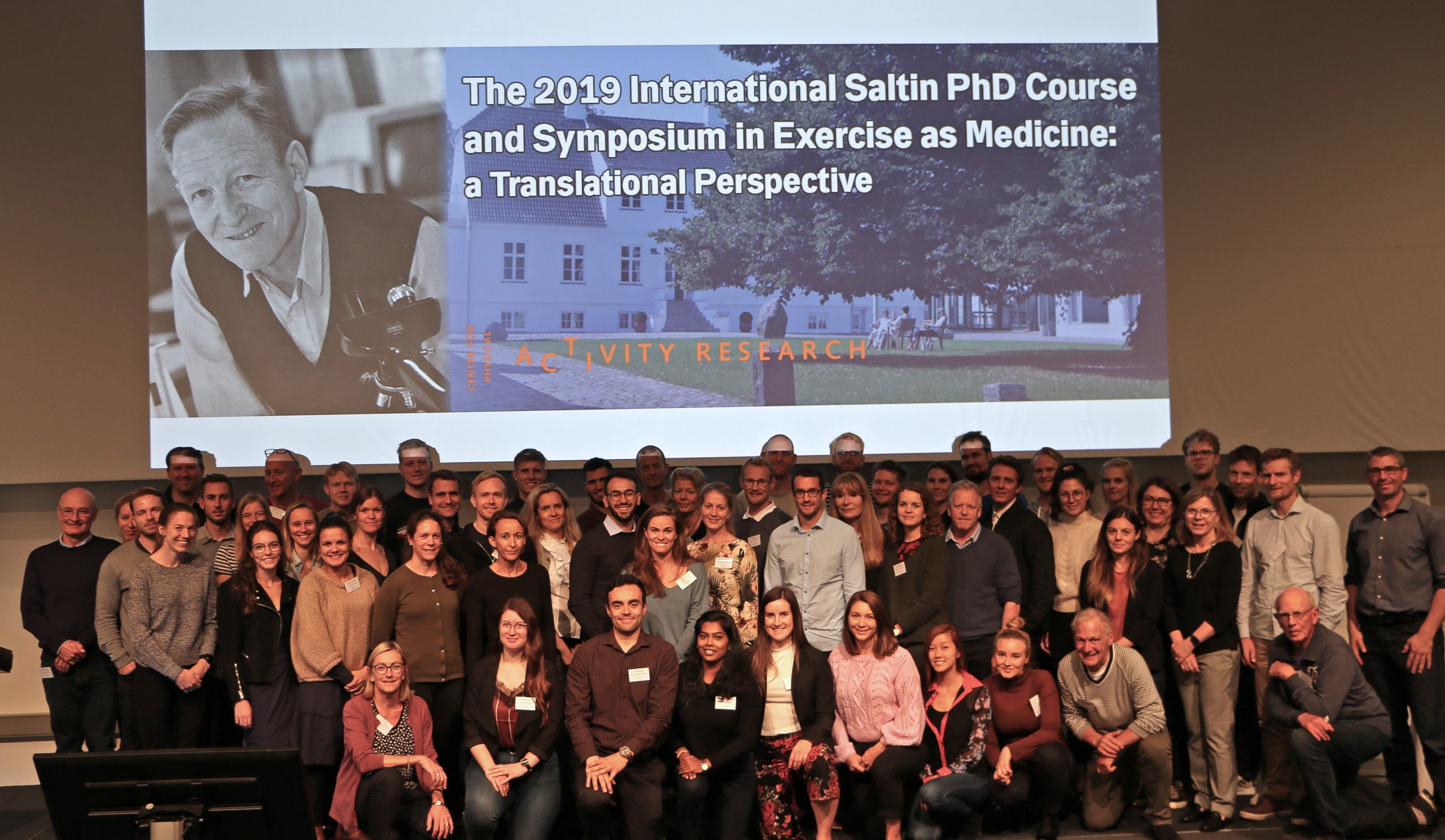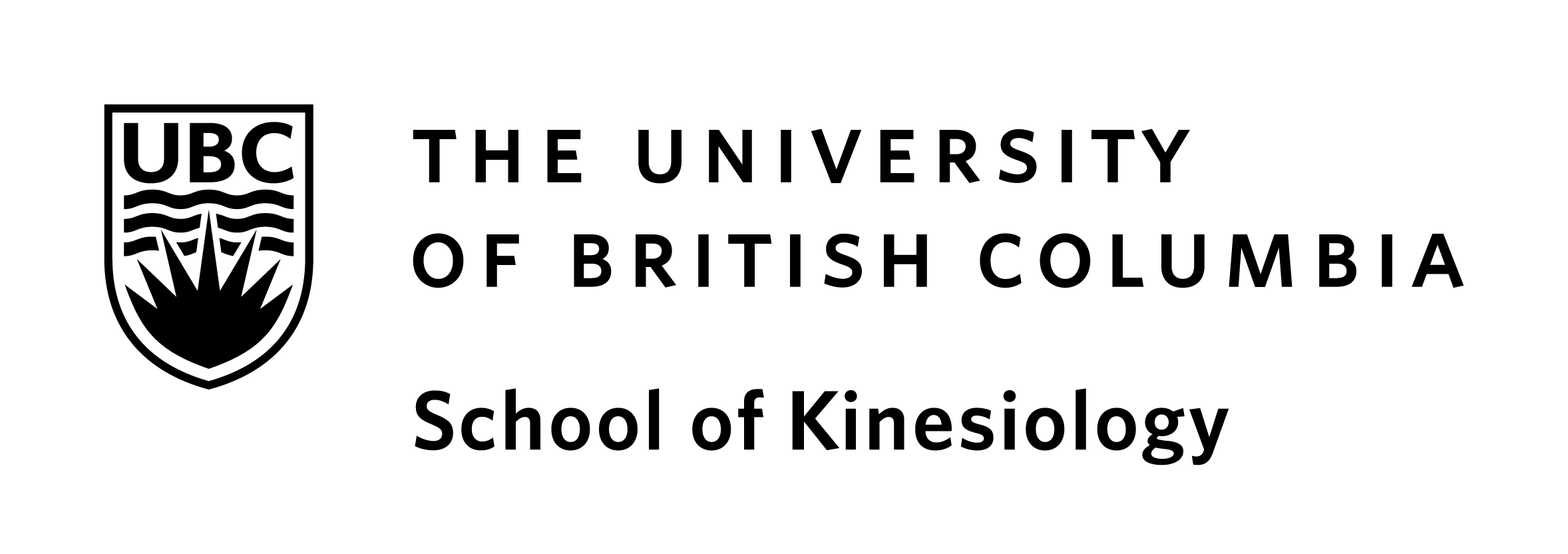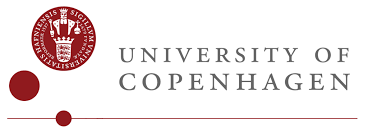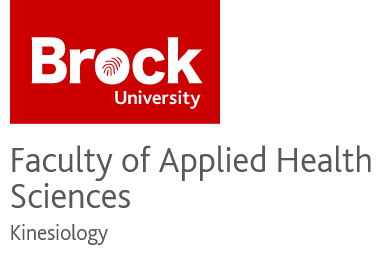
![]()
The Saltin International Graduate Course brings together faculty and students from Canadian, Danish and other universities around the world for a four-day in-person intensive PhD level course in exercise physiology and clinical exercise physiology. The course integrates foundational knowledge with frontier research directions from basic science and applied approaches to uncover mechanisms regulating subcellular signalling, tissue and organ function and integrative physiological system responses to acute exercise and training in healthy individuals and clinical populations. Thematic lectures on diverse topics, panel discussions, poster presentations, structured groups discussions and informal interactions between students and faculty provides a rich environment for student learning, exchange of ideas and expertise, formation of collaboration networks and institutional research exchange. The international aspect of the course fosters sharing of diverse perspectives, traditions, culture and experience.
Download the full Program: Click Here.
jump to > Day 2 | Day 3 | Day 4
The 2022 Saltin International Course in Exercise and Clinical Physiology
Day 1 |
Monday, October 3 |
||||||
| 8:00 - 8:10 | Welcome Robert Boushel, University of British Columbia |
||||||
| 8:10 - 9:00 | Presenting scientific findings: The art of the talk Morten Zacho, Rigshospitalet, Copenhagen |
||||||
| Experimental Models in Exercise Physiology Chair: Michael Kjær, University of Copenhagen
|
|||||||
| 10:15 - 10:45 | Coffee | ||||||
| 10:45 - 11:45 | Student-faculty discussion: talks/presentations and the art of the talk Morten Zacho, Rigshospitalet, Copenhagen |
||||||
| 11:45 - 12:00 | Introduction to Poster Presentations Michael Kjær, University of Copenhagen |
||||||
| Thematic Lecture | |||||||
| 12:00-12:30 | Effect of training on insulin secretion Flemming Dela, University of Copenhagen |
||||||
| 12:30 - 13:30 | Lunch | ||||||
| 13:30 - 17:30 | Recreation and network discussion | ||||||
| 17:30 - 18:30 | Fireside Chat: Experimental models/study design Chair: Cathy Chan, University of Alberta Jørgen Wojtaszewski, André Carpentier, Niels Ørtenblad, Jose Calbet, Mary-Ellen Harper |
||||||
| 18:30 - 19:30 | Dinner | ||||||
Day 2 |
Tuesday, October 4 |
||||||
| Thematic Lecture | |||||||
| 8:00 - 8:45 | Mitochondrial adaptations to exercise Darrell Neufer, East Carolina University |
||||||
| Cardiopulmonary Physiology Chair: Jerome Dempsey, University of Wisconsin
|
|||||||
| 10:00 - 10:30 | Coffee | ||||||
| 10:30 - 12:00 | Student Poster Presentations | ||||||
| 12:00 - 13:00 | Lunch | ||||||
| Sex and Age Differences Chair: Jenna Gillen, University of Toronto
|
|||||||
| 14:15 - 18:00 | Field Trip: Brock University Faculty of Health Sciences | ||||||
| Thematic Lecture | |||||||
| 18:00 - 19:00 | Physiological lessons from nature Michael Joyner, Mayo Clinic, Rochester, Minnesota |
||||||
| 19:00 - 20:30 | Dinner | ||||||
Day 3 |
Wednesday, October 5 |
||||||
| Thematic Lecture | |||||||
| 8:00 - 8:45 | Exercise and adipose tissue metabolism Laurie Goodyear, Joslin Diabetes Center, Harvard University |
||||||
| Exercise, Nutrition and Lifestyle Approaches in Clinical Settings Chair: Kristi Adamo, University of Ottawa
|
|||||||
| 10:05 - 10:30 | Coffee | ||||||
| 10:30 - 12:00 | Student Posters | ||||||
| 12:00 - 13:00 | Lunch | ||||||
| Novel Exercise Targets Chair: Jane Shearer, University of Calgary
|
|||||||
| 14:15 - 18:00 | Recreation and network discussion | ||||||
| 18:00 - 19:00 | Fireside Chat: Mechanisms, Function and Performance Chair: Rebecca McPherson Bill Sheel, Michael Joyner, Michael Koehle |
||||||
| 19:00 - 20:30 | Dinner | ||||||
Day 4 |
Thursday, October 6 |
||||||
| Thematic Lecture | |||||||
| 8:00 - 8:45 | Exercise signaling in insulin sensitivity Jørgen Wojtaszewski, University of Copenhagen |
||||||
| Responses to Exercise Chair: Ylva Hellsten, University of Copenhagen
|
|||||||
| 10:05 - 10:35 | Coffee | ||||||
| 10:35 - 11:00 | Exercise and pollution Michael Koehle, University of British Columbia |
||||||
| 11:00 - 11:30 | Perspectives on graduate student training in exercise and clinical physiology Jerome Dempsey, Professor, University of Wisconsin |
||||||
| 11:30 - 12:00 | Closing Discussion and Course Evaluation Robert Boushel, University of British Columbia Morten Zacho, Rigshospitalet, Copenhagen |
||||||
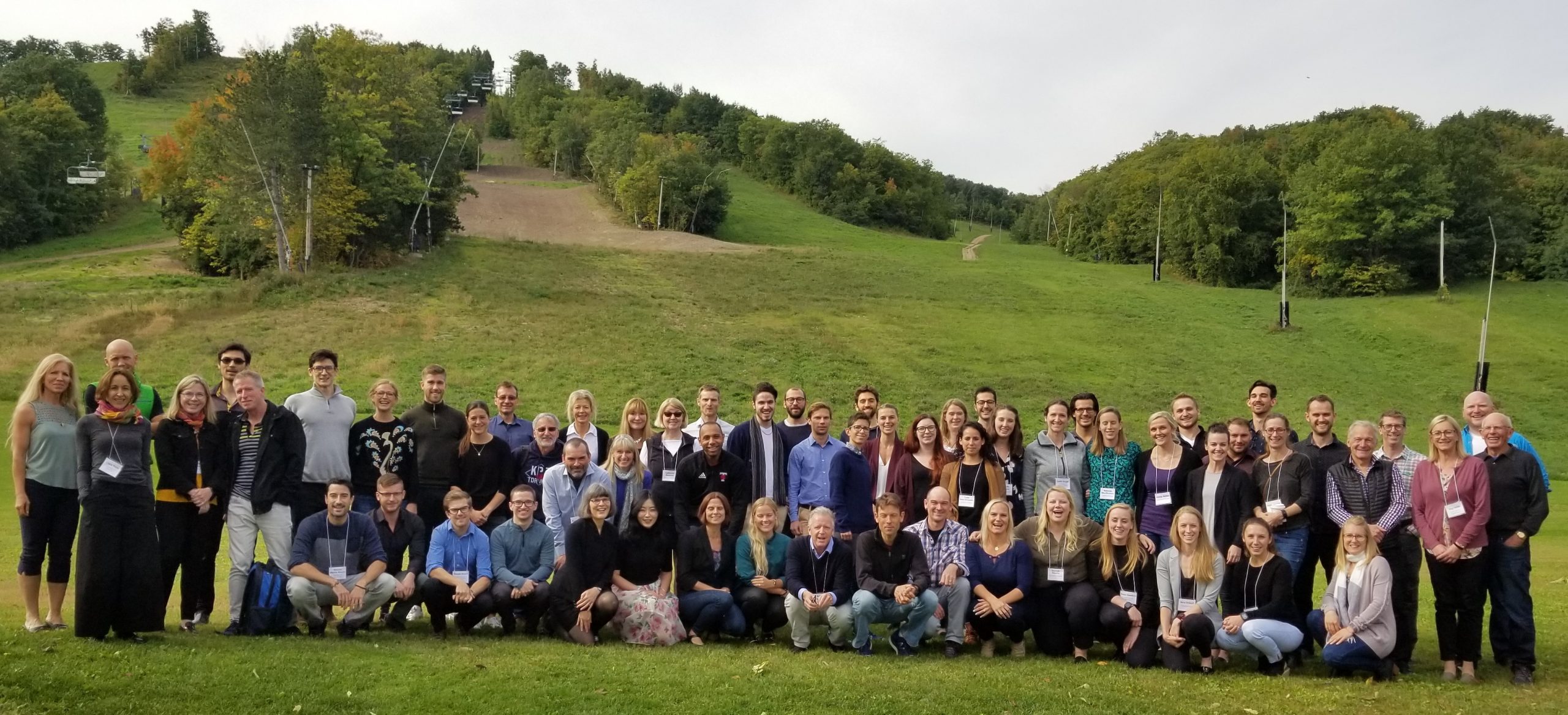
International Perspective
Canada and Scandinavia have strong cultural and business links, with Canada being one of the strongest growing export markets for Danish companies. The Canadian and Danish Trade Commissions have built extensive networks for knowledge exchange based on a shared value system with a continuing commitment to fruitful collaboration on many global issues including industry, culture, and the arctic. Canada shares a 3,000 km maritime border with Denmark (Greenland) as well as rich historic and cultural links between the Inuit populations on both sides of the border. Universities across Canada and Denmark are committed to the ideal of academic scholarship and to the development of an international perspective to broaden and enrich the educational quality and expand research innovation. As part of university missions, students are encouraged to participate in international exchanges and internships, courses, and field schools. These opportunities foster appreciation of other perspectives, cultures, and exposure to new expertise as a part of excellence in university education. Equity, diversity, and responsibility to society are values upon which the mission of Canadian and Danish Universities is founded. International collaborations between Canada and Denmark have been active for close to a century and have developed an intellectual depth and high rates of research discovery. Notably, a rich tradition of scientific collaboration exists in the fields of physiology and exercise.
After receiving the Nobel Prize in 1920 for his work on the function of capillaries, August Krogh took an interest in the work of Frederick Banting and Charles Best on the glucose-lowering peptide insulin. On a trip to North America in 1922 August and his wife Marie who was diabetic, visited Banting’s lab at the University of Toronto. Upon return to Denmark Krogh was instrumental in the nomination of Banting & Macleod for the Nobel Prize in 1923. Krogh obtained a license for the protocol for insulin purification and began production upon his return to Copenhagen. Together with the Danish physician H. C. Hagedorn, Krogh then founded the Nordic Insulin Laboratory and the Nordisk Insulin Foundation which today constitute the company Novo Nordisk and the Novo Nordisk Foundation.
In 1909, Johannes Lindhard was appointed in the Faculty of Medicine to lead the study of Gymnastics as an academic discipline, and in 1917 the laboratory for the Theory of Gymnastics (the Copenhagen School) was formed in the Faculty of Science. Krogh and Lindhard pioneered research on the physiology of exercise with precise measurement of ventilation, heart rate and cardiac output and elucidated the mechanisms regulating these responses. Over 2–3 decades, they firmly established the field of exercise physiology and mentored the next generation of prolific researchers in the field of human integrative physiology, namely Erik Hohwü-Christensen, Erling Asmussen and Marius Nielsen referred to as the ‘three musketeers’. Following in their footsteps, the Swedish physiologist Bengt Saltin conducted research in exercise physiology at the August Krogh Institute, beginning with foundational work on oxygen uptake, extending to muscle bioenergetics and biochemistry, and the role of the circulation in the limits of exercise. Bengt was Director of The Copenhagen Muscle Research Centre that continued the legacy of the University of Copenhagen as a leading centre in the field internationally. Amongst many accomplishments, Saltin was awarded the August Krogh Prize, The Novo Nordisk Prize, and the International Olympic Prize. Bengt was a strong proponent of international collaboration. He was awarded 12 honorary doctorates- 3 from Canadian universities stemming from a rich history of research collaboration (>75 publications) with Canadian scientists. Bengt Saltin was an organizing member of the first International Graduate Courses held in Canada in 2010 and 2011, and owing to the positive review of these courses, he encouraged their continuation.
'There is no doubt that not only was it an exceptional learning opportunity but also the beginning of professional networks were formed. There were a number of discussions among the groups on concrete future studies.’ Bengt Saltin, 2011 Course, Quebec City
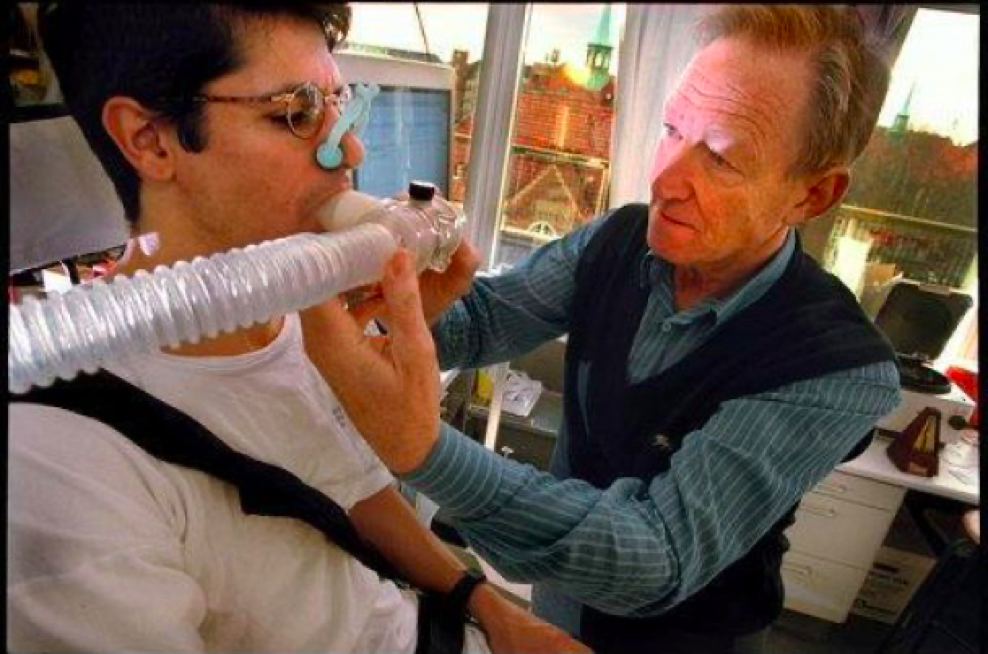 The Saltin International Graduate Course in Clinical and Exercise Physiology will extend the strong scientific lineage between Denmark and Canada. In the field of Exercise Physiology, the respective countries rank in the top tier internationally for scientific impact per capita. In the previous courses held in Canada and Denmark faculty and students from 20 universities were represented. The experience for both faculty and students was unique and highly valued by faculty and students alike.
The Saltin International Graduate Course in Clinical and Exercise Physiology will extend the strong scientific lineage between Denmark and Canada. In the field of Exercise Physiology, the respective countries rank in the top tier internationally for scientific impact per capita. In the previous courses held in Canada and Denmark faculty and students from 20 universities were represented. The experience for both faculty and students was unique and highly valued by faculty and students alike.
‘I have taken part in these courses and the experience was amazing. It is a great learning opportunity and you get to interact with world experts both formally and informally. You can meet fellow students from across Canada and Europe - in some cases developing friends for decades. I encourage you to strongly consider fitting this into your studies. You will not get many of these chances.’ Terry Graham- Professor Emeritus, University of Guelph
Organizing Committee
Robert Boushel
University of British Columbia
Mary-Ellen Harper
University of Ottawa
David Wright
University of British Columbia
Michael Kjær
University of Copenhagen
Kathy Manson
University of British Columbia
Inge Holm
Rigshospitalet, Copenhagen
Course Objectives
- To provide an innovative learning experience for graduate students through exposure to and interaction with an extensive group of internationally recognized scholars and student peers across Canada and Internationally.
- To gain exposure to diverse research perspectives and experimental approaches to enrich student learning through plenary lectures by numerous renowned researchers and educators.
- To facilitate interactive discussion on cutting edge topics, explore approaches to stimulate creativity and novelty in research design and enhance research study impact.
- To gain experience in formulating and communicating research proposals.
- To foster the formation of research networks between scientists and institutions for the exploration of future academic research initiatives.
- To participate in discussions on career paths and trajectories.
- To gain experience presenting research to peers and scholars.
Course Outcomes
Graduate students will have the unique opportunity to view leading presentations and discussions with scholars in the field of exercise physiology on an array of topics over a 4-day period. Students will be exposed to state-of-the-art experimental approaches that may be implemented in their own research to enhance novelty and impact. The opportunity exists to connect with peers at national and international levels.
Location
Queen's Landing: 155 Byron Street, P.O. Box I 180, Niagara-on-the Lake, ON, LOS I JO
Phone#: 905-468-2195.
https://www.vintage-hotels.com/queens-landing/
Fees
Registration includes food and room accommodation for 4 days/nights. Please select from one of the following:
- Course Registration & Single Room - $1575 plus 13% tax (limited availability)
- Course Registration & Double Room - $1150 plus 13% tax
*The venue has a limited number of single rooms. We will do our best to accommodate a single room request. Registration fees are to be paid to Queen's Landing upon check-in at the course venue.
André Carpentier
Université de Sherbrooke
Bill Sheel
University of British Columbia
Brittany Edgett
University of Calgary
Cathy Chan
University of Alberta
Celine Aguer
McGill University (Outaouais Campus)
Chris Perry
York University
Darrell Neufer
East Carolina University
David Wright
Graham Fraser
Memorial University
Greg Steinberg
McMaster University
Jane Shearer
University of Calgary
Jenna Gillen
University of Toronto
Jerome Dempsey
University of Wisconsin
Jose Calbet
University of Las Palmas
Jørgen Wojtaszewski
University of Copenhagen
Kristi Adamo
University of Ottawa
Laurie Goodyear
Joslin Diabetes Center, Harvard University
Mary-Ellen Harper
Michael De Lisio
University of Ottawa
Michaela Devries
University of Waterloo
Michael Joyner
Mayo Clinic, Rochester, Minnesota
Michael Kjær
University of Copenhagen
Michael Koehle
University of British Columbia
Morten Zacho
Rigshospitalet, Copenhagen
Niels Ørtenblad
University of Southern Denmark
Rebecca McPherson
Brock University
Robert Boushel
University of British Columbia
Ylva Hellsten
University of Copenhagen
Dr. Robert Boushel, Director
School of Kinesiology
War Memorial Gymnasium 210D
6081 University Boulevard
Vancouver, BC V6T 1Z1
saltincourse.kin@ubc.ca
